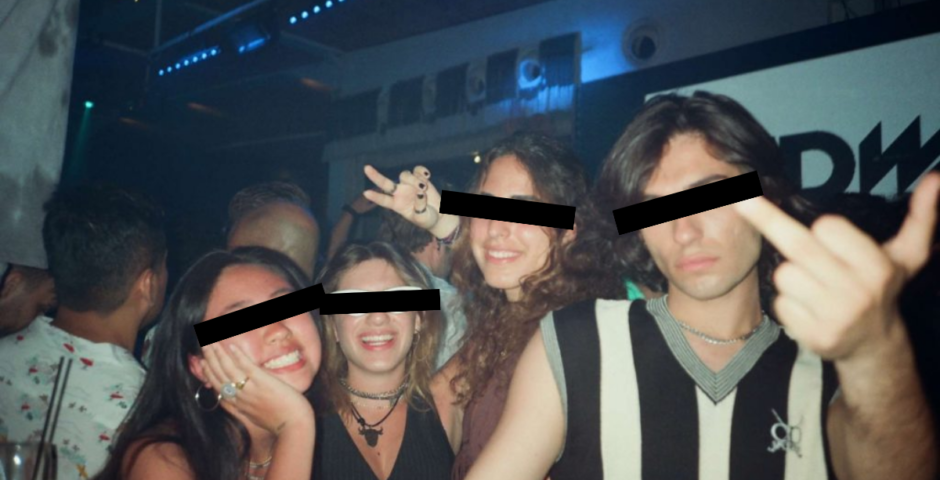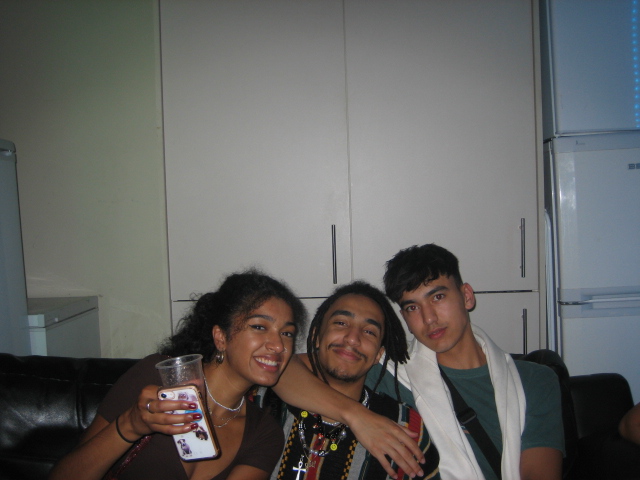
I’m sick of being asked to watch my drink by clubs who don’t seem to care if I get spiked
London clubs and authorities just aren’t taking the urgent action we need against spiking
Spiking is when additional drugs or alcohol are added to a person’s drink without their consent, and has been a word that we’ve all heard far too much in the last couple of weeks.
Even though most people are wary of how often drink spiking occurs, it has become even more terrifying with the several reports of spiking via injection across the UK. Victims have been finding a small red bump on their skin and feeling the same symptoms as being spiked.
These symptoms include feeling drunk, drowsy or sick. What is concerning is that, as well as the serious risks associated with spiking, there are also now worries around attackers using unclean and HIV-infected needles.
The worst part about it all is that while we are now terrified to go out clubbing without risking our own safety, authorities just don’t seem to care. Where are all the nightclub closures and active measures? Where are the police investigations?
I tried to phone up and email pretty much every London club you can think of, from Fabric to Cargo, to ask how they’re dealing with the spiking epidemic and the measures they’re putting in place, and the vast majority not only are ignoring the issue on their socials, but didn’t even respond to me. That’s how much they value this issue.
We need London nightclubs to speak out, to give reassurance, and to tell us that they are taking action and are serious about this epidemic, because right now the silence coming from a majority of clubs is deafening.

Between 2015 and 2019, there were at least 2,600 official reports of drink spiking in the UK with majority victims being female. The Tab’s survey taken by over 23,000 people also revealed a shocking 2,625 people who believe they had been spiked since the beginning of term alone.
The London Tab’s recent poll on Instagram has revealed that 315 students, accounting for over 68 per cent of respondents, said that they do not feel safe going out clubbing in London. Out of over 450 people, 43 per cent of London students have been spiked before, or know someone that has been.
I can guarantee you that every woman you know is angry, concerned and confused to at how our safety has rapidly diminished in a matter of weeks. Serial spiking has become a trend all over the UK, and yet it’s barely even being taken seriously.
The London Night In movement, created by students in retaliation of this spiking epidemic, has been campaigning the boycott of nightlife venues for at least a couple of weeks now.
The petition to “make it a legal requirement for nightclubs to thoroughly search guests on entry” has now received over 150,000 signatures which means it will now be considered for debate in Parliament.
But the topic of spiking has only just broken into mainstream media like BBC and ITV, despite it being a massive problem country-wide since the beginning of term. Why has it taken so long for our voices to be heard and our fears to be recognised?
Pryzm and XOYO are two of the few clubs in London that have publicly spoken out about the measures they have put in place to prevent drink spiking, and they seem to actually be taking it seriously which is a great start.
Pryzm’s new preventative measures include training staff on the issue of drink spiking, more thorough searches, security wearing body-cams, providing anti-spiking devices such as protective drink covers, having a qualified first-aider on site, and free phone charging.
https://www.instagram.com/p/CVS-5kKIAs6/?utm_source=ig_web_copy_link
XOYO has additionally outlined the consequences a perpetrator would face if they are found with paraphernalia, and told anyone “intending to harm” that they “are not welcome here”:
Corsica Studios has also released a statement, saying: “We’re currently in negotiations with The Loop to access further drug awareness training. We’ve updated our CCTV so now we have good views in HD of the bar and other areas, to be able to identify potential and reported problems.”
They also mentioned that they would “provide lids on drinks on request, for potential spiking via drinks” and “can update the security team to make sure their pat-downs are more thorough, to find potential syringes and also be aware of this problem.”
We’re asking for the bare minimum, for clubs to acknowledge the problem and acknowledge there is work to be done on their part to solve this issue. And yet I found three that even reach that standard.
Printworks said they “operate extremely thorough searches on entry to the venue for every person attending an event”.
This is almost as frustrating as the advice page on the Metropolitan Police website about drink spiking, which is utterly ignorant to the fact that spiking is not our responsibility, and it’s actually theirs to catch and stop criminals doing it.
The website informs us how we can “avoid” drink spiking. The three points mentioned are to “never lose sight of your drink”, “be vigilant if you’re drinking with strangers” and “be a drink buddy”.
A Met Police spokesperson told the Tab: “Officers across the Met work hard all year round to help keep revellers safe in London’s licensed premises. Recently, officers have been rolling out the safety initiative “Ask for Angela” at many venues across London.
“People who feel unsafe, vulnerable or threatened – including those who think their drink has been spiked – can discreetly seek help by approaching venue staff and asking them for “Angela”. This code-phrase will indicate to staff that they require help with their situation and a trained member of staff will then look to support and assist them. This might be through reuniting them with a friend, seeing them to a taxi, or by calling venue security and/or the police.
“Venues that support Ask for Angela will also have been given or offered Welfare and Vulnerability Engagement (WAVE) training. Delivered by the Met’s licensing officers and Safer Sounds, it gives staff the ability to help customers who may be in a situation that makes them vulnerable or unsafe.
“Drink spiking using controlled drugs is rare. However, there are certain precautions you can take, including avoiding leaving your drink unattended and looking out for your friends. If you see anything suspicious, report it to bar staff or police.
“We would encourage anyone who believes they have been a victim or witness to spiking, in any form, to contact the police.
“We would also urge people not to put any substance (including alcohol), for whatever reason, into someone else’s drink without their knowledge – as by doing so you could be committing a criminal offence.”

Are women not being vigilant enough or is the problem actually male violence? Is “Ask for Angela” really going to solve all our problems?
Even when we are being vigilant, looking out for our friends and not leaving our drinks unattended, drink spiking still occurs and we are no closer to stopping the people doing it.
Instead of telling us to watch our drinks, why aren’t the police tackling the real issues? Tracking down the source of the substances used to spike drinks, making it compulsory for clubs to give out drink protective devices, and actually listening to what victims have to say?
BBC News reported a case of a woman who felt gaslighted by the police after reporting that she got spiked in a pub. When she contacted the police she said she was “treated like a criminal” and described the experience as “just awful”. She felt that officers were “accusatory” towards her for drinking and said the “mental gymnastics” she went through “took its toll”.
Drink spiking is a very under-reported crime. Helena Conibear, the CEO of Alcohol Education Trust, told the BBC that the reported 2,600 incidents of drink spiking is not reflective of the actual numbers.
I highly encourage everyone of all genders to support the London Night In movement to ensure that venues listen to our concerns. Without action, spiking will continue to be allowed to happen throughout the country for the foreseeable future, and our safety will still be at risk.
On a positive note, it is hopeful to see some clubs have already implemented change. The most common action taken by clubs have been providing cling film and free drink covers. However, this is only a temporary course of action and it is a minority of London clubs that have shown initiative.
If you or someone you know has been affected by drink spiking, help is available. The Victim Support is an independent charity that offers free, confidential help.
Call 0808 1689 111 or go to Victim Support’s website.
Loop, Fabric, Ministry of Sound, Cargo, Tiger Tiger, Heaven, Steel Yard, Pryzm, Corsica Studios, Studio 338, Electric Brixton, Electric Ballroom have all been contacted for comment.









































